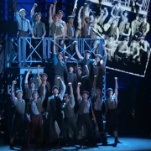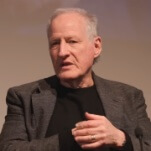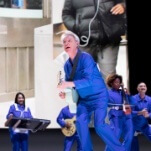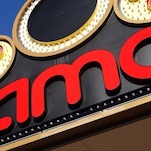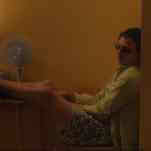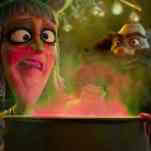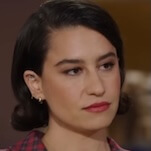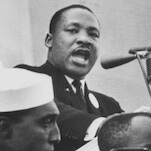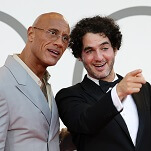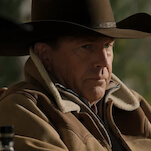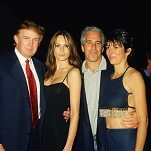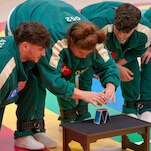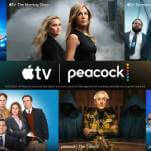Joan Allen stars as the neglected, lonely wife of Sam Neill, a rich politician whose recent affair has left Allen vulnerable to the charms of a passionate chef. Simon Abkarian was a surgeon in his native Beirut, but unable to practice overseas, he finds a more menial use for his precision with a knife: chopping vegetables in a restaurant kitchen where accents, nationalities, and ideologies spar. After tensions there come to a head, Abkarian's frustration leads him to turn on the increasingly needy Allen, confronting her with the privilege of her white skin, her American citizenship, her money, and her dominant feminist self-confidence. Baffled at suddenly being made into a symbol instead of an individual, she fights back by trying to bring him back to the specifics of their personal relationship. Their sudden culture clash comes directly out of 9/11, and while, like much of the film, it often seems more iconic than realistic, that seems entirely deliberate on Potter's part.
Visually and narratively, Yes is inarguably pretentious. Potter views her characters via many gimmicky film stocks, speeds, and effects, and she has them speaking mostly in rhyming iambic pentameter. The elaborate poetic couplets heighten the eroticism of the mostly conversational love scenes, and sharpen the comedy of Abkarian's banter with his co-workers, but make casual conversation seem stilted, and sometimes let dialogue blur by at unfollowable speeds. Occasionally, as when Potter has characters expressing their inner thoughts in voiceover just before speaking them aloud, or when the Philip Glass score kicks in, Yes resembles a high-end perfume commercial more than a narrative film. And during plot divergences into the perspective of Allen's cleaning woman and her dying Irish aunt, Yes seems more distracted than artistic. But at its best, it maintains a delicate, almost dreamlike detachment that allows it to address dangerous subjects without veering into stridency. With a mood that fragile, it's no wonder Potter breaks it from time to time.




